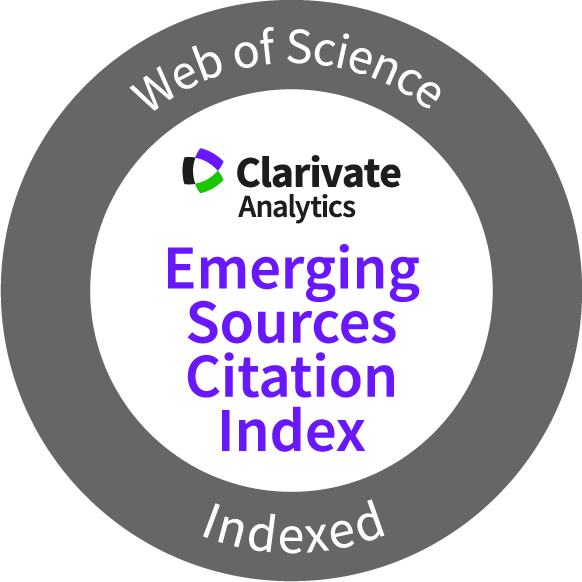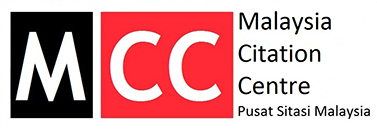Exploring The Potential of Shrimp Paste (Belacan) and its Indigenous Microorganisms (IMO) as a Growth Enhancer for Capsicum annum L. (Chilli) Plants
Keywords:
auxin, heritage food, plant growth promoting bacteria, phosphate solubilising, sustainabilityAbstract
In recent years, there has been growing interest in utilizing Indigenous Microorganisms (IMO) as plant growth-promoting agents, with studies demonstrating their effectiveness in enhancing crop growth. Despite local practices utilizing food-based substrates, limited reports exist on the application of IMO from fermented foods to enhance the growth of Capsicum annum L. (chili) plants. Therefore, this study aimed to investigate the mechanism of Belacan (fermented shrimp paste) as a biofertilizer in promoting the growth of Capsicum annum L. Belacan was supplemented with molasses as a carbon source, and the cultured bacteria were subsequently isolated and identified using nucleotide analysis of the 16S rRNA region. Two major bacterial isolates, Bacillus velezensis, and Lysinibacillus fusiformis, were identified as potential plant-growth-promoting bacteria, with nutrient solubilization and auxin production capability. The application of belacan on chili plants revealed that they significantly enhanced plant growth parameters, including shoot length, leaf length, width, thickness, and chlorophyll content, compared to the control group. These findings suggest that IMO from Malaysian fermented foods hold potential as biofertilizers to promote the growth of chili plants, contributing to the advancement of environmentally friendly and nutritionally rich agriculture.
Downloads
Metrics
References
Abedelazeez, K.J.D., Nurul Solehah, M.Z., Jaafar, A.H., Meor Hussin, A.S., Wan-Mohtar, W.A.A.Q.I. & Abd Rahim, M.H. 2023. Production, organoleptic, and biological activities of belacan (shrimp paste) and pekasam (fermented freshwater fish), the ethnic food from the Malay Archipelago. Sains Malaysiana, 52(4): 1217–1230. DOI: https://doi.org/10.17576/jsm-2023-5204-14
Ahemad, M. & Kibret, M. 2014. Mechanisms and applications of plant growth promoting Rhizobacteria: Current perspective. Journal of King Saud University - Science, 26(1): 1–20. DOI: https://doi.org/10.1016/j.jksus.2013.05.001
Ali, H., Sallahuddin, N., Ahmed Shamsudin, N.H., Mohd Zain, N.A., Ibrahim, M.H. & Yaacob, J.S. 2022. Abiotic stress induces morphological, physiological, and genetic changes in Orthosiphon Stamineus Benth. in vitro cultures. Horticulturae, 8(2): 153. DOI: https://doi.org/10.3390/horticulturae8020153
Alori, E.T., Glick, B.R. & Babalola, O.O. 2017. Microbial phosphorus solubilization and its potential for use in sustainable agriculture. Frontiers in Microbiology, 8: 971. DOI: https://doi.org/10.3389/fmicb.2017.00971
Azlan, A., Sultana, S., Huei, C.S. & Razman, M.R. 2022. Antioxidant, anti-obesity, nutritional and other beneficial effects of different chili pepper: A Review. Molecules, 27(3): 898. DOI: https://doi.org/10.3390/molecules27030898
Das, S., Nurunnabi, T.R., Parveen, R., Nur Mou, A., Islam, M.E., Islam, K.M.D. & Rahman, S.M.M. 2019. Isolation and Characterization of Indole Acetic Acid Producing Bacteria from Rhizosphere Soil and their Effect on Seed Germination. International Journal of Current Microbiology and Applied Sciences. 8(3): 2319-7706. DOI: https://doi.org/10.20546/ijcmas.2019.803.146
Elhaissoufi, W., Ghoulam, C., Barakat, A., Zeroual, Y. & Bargaz, A. 2022. Phosphate bacterial solubilization: A key rhizosphere driving force enabling higher P use efficiency and crop productivity. Journal of Advanced Research, 38: 13–28. DOI: https://doi.org/10.1016/j.jare.2021.08.014
Kumar, A. & Verma, J.P. 2018. Does plant—microbe interaction confer stress tolerance in plants: a review. Microbiological Research, 207: 41–52. DOI: https://doi.org/10.1016/j.micres.2017.11.004
Lamont, J. R., Wilkins, O., Bywater-Ekegärd, M. & Smith, D. L. 2017. From yogurt to yield: Potential applications of lactic acid bacteria in plant production. Soil Biology and Biochemistry, 111: 1-9. DOI: https://doi.org/10.1016/j.soilbio.2017.03.015
Li, W. 2022. Cooperation vs. competition: microbiome diversity and interactions. Harvard University. https://sitn.hms.harvard.edu/flash/2022/cooperation-vs-competition-microbiome-diversity-and-interactions/ (accessed 7.23.24)
Mohd Zaini, N.S., Idris, H., Yaacob, J.S., Wan-Mohtar, W.A., Putra Samsudin, N.I., Abdul Sukor, A.S., Lim, E.J. & Abd Rahim, M.H. 2022. The potential of fermented food from Southeast Asia as biofertiliser. Horticulturae, 8(2): 102. DOI: https://doi.org/10.3390/horticulturae8020102
Mohd Zaini, N.S., Khudair, J.D.A., Mohsin, Z.A., Jitming Lim, E., Minato, W., Idris, H., Yaacob, J.S. & Abd Rahim, M.H. 2023. Biotransformation of food waste into biofertilisers through composting and anaerobic digestion: a review. Plant, Soil and Environment, 69(9), 409–420. DOI: https://doi.org/10.17221/101/2023-PSE
Muzaifa, M., Murlida, E., Nilda, C., Rozali, Z.F. & Rahmi, F. 2023. Isolation and identification of protease-producing bacteria from belacan depik, a traditional fermented fish of the Gayo tribe. IOP Conference Series: Earth and Environmental Science, 1177(1): 12038. DOI: https://doi.org/10.1088/1755-1315/1177/1/012038
Patten C.L., Glick B.R. 2002. Role of Pseudomonas putida indoleacetic acid in development of the host plant root system. Applied Environmental Microbiology, 68(8): 3795-3801. DOI: https://doi.org/10.1128/AEM.68.8.3795-3801.2002
Tiwari, S., Prasad, V. & Lata, C. 2019. Chapter 3 - Bacillus: plant growth promoting bacteria for sustainable agriculture and environment. In: New and Future Developments in Microbial Biotechnology and Bioengineering. J.S. Singh and D.P. Singh (Eds.). Elsevier. Amsterdam. pp. 43-55. DOI: https://doi.org/10.1016/B978-0-444-64191-5.00003-1
Yu, A.O., Leveau, J.H.J. & Marco, M.L. 2020. Abundance, diversity and plant-specific adaptations of plant-associated lactic acid bacteria. Environmental Microbiology Reports, 12(1): 16–29. DOI: https://doi.org/10.1111/1758-2229.12794
Published
How to Cite
Issue
Section
Any reproduction of figures, tables and illustrations must obtain written permission from the Chief Editor (wicki@ukm.edu.my). No part of the journal may be reproduced without the editor’s permission




















